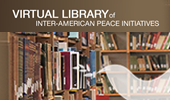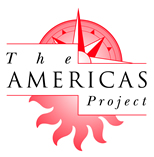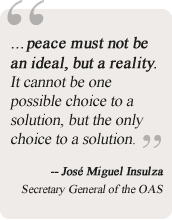| Home |
||
The Americas Project |
||
The Americas Project Fellows meet at the Baker Institute over a four-day period. This period of critical involvement for the fellows includes significant discussion, lectures from prominent voices in the international arena, interactions with senior scholars from Rice and other academic institutions, and extensive networking and dialogue. |
||
 Round Table
Round Table |
||
|
2012 Colloquium Building Global Green Economies in the Americas October 24-27, Houston, Texas Economic progress, social inclusion and environmental stewardship are three key factors for the world’s sustainable development. Over the past four decades, global research and conferences like the 1992 Earth Summit and the follow-up Rio+20 Conference have contributed to a better understanding of the critical relationship among these issues. There is no question that the social well-being of people in developed and developing countries is cohesively tied to the countries’ economic development and the preservation of their natural resources. Moreover, the focus of the debate has evolved from whether climate change and biodiversity loss really exists and matters, to what policies and mechanisms can be used to mitigate their impact. The green economy model encompasses and advances the aforementioned three pillars of sustainability. The United Nations Environment Programme defines a green economy as “one that results in improved human well-being and social equity, while significantly reducing environmental risks and ecological scarcities.” This concept provides a framework to respond to current global challenges including food security, globalization and climate change by promoting growth while protecting the earth’s ecosystems and contributing to poverty alleviation. Given the complex and transnational nature of green economies and sustainable development, along with the intricate web of interests from different segments of society, adequate discourse on the issue requires open and candid communication among governments, civil society and the private sector. This year’s Americas Project will examine how countries in the Americas are making the transition to green economies. The colloquium will engage a group of young leaders in a rigorous discussion on the costs, benefits and risks the countries of the Americas face in the adoption and implementation of green economies, and conference fellows will share specific initiatives for green economic growth in their countries. Prior to the symposium, participants will also complete a survey assessing the progress (or lack of) of green economies in their country of origin, as well as compile a list of initiatives promoting green economic growth. General roundtable topics Assessing benefits, costs and risks of transitioning to green economies — The challenge of implementing green economies requires certain sacrifices to be made today in order to ensure a better tomorrow. This roundtable seeks to investigate both the potential benefits and trade-offs of transitioning to green economies. Participants will discuss a cost-benefit analysis, looking at both short- and long-term transition issues. What are the tangible pros and cons of current green economic initiatives in the Americas? Will countries with primarily resource-driven economies be able to adopt sustainable practices without significantly hindering growth? How do we address tendencies toward state protectionism during the transition? What are the political challenges facing the enactment of policies that favor green economies? Domestic strategies to help countries transition to green economies — Participants will discuss and compare the current strategies in place in their respective countries and analyze the economic and bureaucratic challenges to the progress of these schemes. They will explore how different political systems approach the concept of green economies, and they will evaluate opportunities for policy reform. Furthermore, participants will assess the social and economic development needs in their countries in order to understand the potential impact of green economic initiatives. Financial support for developing countries during the transition process — Participants will briefly discuss the history of domestic and international investment in their countries through the lens of sustainable development, addressing how finance and industrialization influence environmental conservation, social progress and economic growth. This historical framework will provide a foundation for analyzing current policies that permit green investments in the region, with a specific focus on building both government and corporate accountability. Participants will outline innovative strategies for building capital for the green economic transition with safeguards for business, public and environmental interests. |
||
|
Past Colloquiums Reports Alumni Picture Gallery |
||
|
The Americas Project official website: http://www.bakerinstitute.org/programs/the-americas-project/thisyear.cfm |







